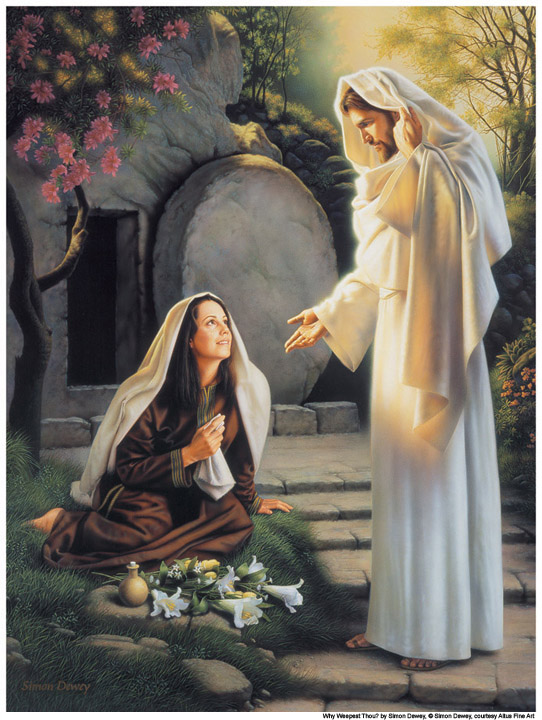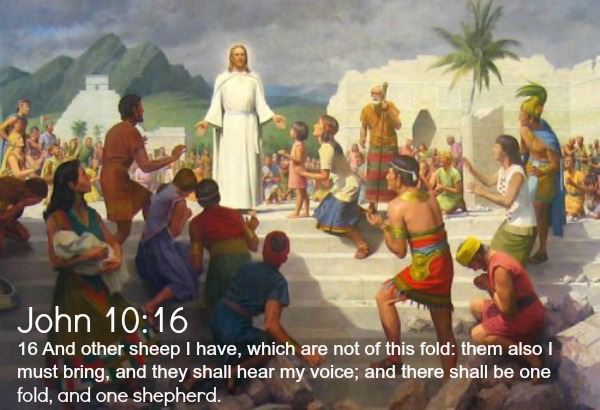As Easter approaches, most of the Christian world is preparing to observe Lent. Many people may be curious about whether members of The Church of Jesus Christ of Latter-day Saints (“which church is often misnamed the “Mormon Church”), Latter-day Saints, or “Mormons,” practice Lent. The answer is no, Latter-day Saints do not practice Lent. However, they do anticipate Easter with the same thoughts of gratitude to the Savior and His sacrifice for the world that the practice of Lent is intended to cultivate. In addition, they are encouraged every week to make personal sacrifices and repent of past wrongs, denying themselves of all ungodliness to draw nearer to Christ.
Lent is a wonderful holiday which brings worshipers closer to Jesus Christ. Thus, Latter-day Saints (“Mormons”) have nothing to criticize in the practice of Lent. The reason for the LDS Church not observing Lent is that it is not a holiday observed in the New Testament, nor instituted by the apostles. While its history can possibly be traced back to some kind of observance by the original Twelve Apostles, there is no indication that it was revealed by God that He wished this period of time to be observed in any certain way. Current scholars say that the oldest records we have indicate a wide variation in the practice of this observance which developed and became somewhat more standardized over time. In fact, today there is still quite a bit of variation among Christian denominations regarding the observance of Lent.
The most important record regarding Lent is a letter recorded by Eusebius in the Church History Volume 24 from St. Irenaeus to Pope Victor. It is clear to scholars from this passage that there was never a pattern set in place by the apostles.
 When Joseph Smith, Jr., restored the gospel of Jesus Christ, Jesus Christ Himself revealed to Joseph what things needed to be restored. The practice of Lent was not among them. For Latter-day Saints, this is a clear indication that it was not practiced in the early days of the Church, or it would be restored today.
When Joseph Smith, Jr., restored the gospel of Jesus Christ, Jesus Christ Himself revealed to Joseph what things needed to be restored. The practice of Lent was not among them. For Latter-day Saints, this is a clear indication that it was not practiced in the early days of the Church, or it would be restored today.
That being said, The Constitution on the Sacred Liturgy of Vatican Council II stated:
The two elements which are especially characteristic of Lent—the recalling of baptism or the preparation for it, and penance—should be given greater emphasis in the liturgy and in liturgical catechesis. It is by means of them that the Church prepares the faithful for the celebration of Easter, while they hear God’s word more frequently and devote more time to prayer.
Any practice which brings a worshiper closer to the Savior is certainly a good one. Latter-day Saints (“Mormons”) do not practice Lent because they do not believe it to be a part of Jesus Christ’s restored gospel. However, they respect the practice of any and all who wish to observe this holiday.
For Latter-day Saints, Easter is the holiest holiday. While Christmas is a wonderful celebration of the birth of the Savior of the World, Easter is the celebration of the culmination of His work. Latter-day Saints focus a great deal on the importance of the atonement of Jesus Christ. Indeed, it is central to all other doctrine. Latter-day Saints, however, do not focus nearly as much on the death and crucifixion of the Savior as they do on His resurrection. Not that His death was unimportant—quite the contrary—but that His atonement included and was completed with His resurrection. We recognize and appreciate that He died for us, but it is even more important to remember that He lives today. He actually rose from the dead, and He lives! Some of the greatest words ever spoken on this earth were, “He is not here: for he is risen” (Matthew 28:6).
Latter-day Saints (“Mormons”) believe that through the atonement of Jesus Christ we can repent and be cleansed and purified from our sins. This is only possible if we obey His commandments and follow the path that He laid down as the only way back to our Heavenly Father. There is an ongoing debate in the Christian world about the relationship between grace and works. Latter-day Saints believe both are important. While there is nothing an individual can do to justify him- or herself through personal works, Jesus Christ has made access to the healing and cleansing power of His atonement conditional upon the efforts we make in our lives to emulate Him. We can only be saved by His grace, but we can only gain access to His grace by trying as hard as we can to improve and keep His commandments.
Jesus Christ is the Son of God. He was born to Mary and He lived a full life on this earth. He performed the incomprehensible act of the atonement for all mankind by taking upon Himself the sins and infirmities of the world. He then gave His life for mankind, but had the power to take it up again. Thus, He gained power over both death and hell. He grants us access to this power through His sacrifice. What more glorious news can there be?
It is appropriate that the time leading up to the celebration of His resurrection should be spent in reflection. Latter-day Saints believe in the importance of renewing one’s baptismal covenants every Sunday through partaking of the Sacrament (similar to Communion). Repentance is a continual and continuous process. We should be placing Jesus Christ at the center of our lives every day. While setting aside the time before Easter to abstain from certain luxuries and to focus on Jesus Christ is not a restored ordinance, it is certainly a wonderful tradition of remembering His sacrifice for each of us.
This article was written by Doris White, a member of The Church of Jesus Christ of Latter-day Saints.





Very well written. Lent may not technically be a holiday, but it’s a “holydays” to me (40, to be exact). Thank you for taking the time to explain how Lent relates to Christians everywhere.
Lent is not a holiday.